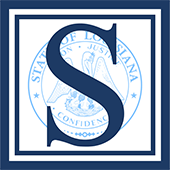‘Clear retaliation’: Louisiana attorney general accused of conflict of interest in clemency petition cases
As it appeared on The Guardian
Louisiana’s far-right attorney general Jeff Landry faces accusations of targeted retaliation and a major conflict of interest after he pushed to remove an independent counsel representing the state’s pardon board as it prepared to hear clemency petitions from dozens of death row inmates.
Landry, a staunch supporter of the death penalty, has ardently opposed the historic mass clemency petitions and last month joined a civil suit against the pardon board itself in order to block hearings from moving forward, citing alleged infringements of “eligibility and notice rules”. After an independent lawyer, hired by the parole board, pushed back against the lawsuit, documents reveal the attorney general moved to block his appointment. The move has placed the entire clemency process in jeopardy as the first round of hearings are due to begin in less than two weeks.
Louisiana’s pardon board policy mandates that only the state’s governor has the power to direct the board to schedule capital clemency hearings, with the state constitution endowing only the governor right to grant clemency. Louisiana’s current governor John Bel Edwards is a Democrat who earlier this year expressed opposition to the death penalty and will leave office in January of next year. In late August he instructed the board to move forward with the process.
In response to Landry’s lawsuit, the board hired an independent attorney, J Arthur Smith III, who argued in pleadings on behalf of the board that the civil action should be dismissed due to its attempted “unconstitutional exercise of the governor’s exclusive pardon power”. The pleadings affirmed the board’s position, that neither the state attorney general, nor the group of local conservative prosecutors who are also suing, had authority to block the clemency hearings.
Documents obtained by the Guardian show that Smith also wrote directly to Landry on 26 September, urging him to voluntarily recuse himself from the suit, arguing his move against the state’s board is a conflict of interest and a violation of Louisiana legal ethics.
In an extraordinary move, Landry wrote back to Smith on the same day, seeking his removal as independent counsel suggesting the board had hired him “prior to obtaining the necessary approvals for state contracts” and arguing that his request for recusal “calls into question your competency as a lawyer”.
“You are not authorized to serve as legal counsel,” Landry states in the letter.
Smith is a respected legal veteran who has practiced law in Louisiana for over 50 years.
In his letter, Landry acknowledges the attorney general’s office has “no constitutional or statutory mandate” to represent the pardon board but goes on to state the office “can appoint special counsel for the board if needed”. The attorney general’s office typically provides assistance to the board on procedural legal issues.
According to filings, the board has since hired another firm, one that Landry’s office previously hired to defend the implementation of the state’s harsh abortion laws. The firm, Sher, Garner, Cahill, did not immediately respond to a request for comment.
In an interview with the Guardian, J Arthur Smith called Landry’s actions “clear retaliation”.
“It is terrible,” said Smith. “This is a real serious case, and we just tried our best to set out the position of the pardon board, which I thoroughly believed were correct, so there could be a non-conflicted outcome. The lives of these inmates is basically at stake.”
Smith added: “Think about it, you sue somebody and then say: ‘I am going to select the lawyers who defend you.’ It seems logically, that’s a conflict of interest.”
Landry’s office did not respond to a request for comment.
Although the first five clemency hearings are still scheduled for 13 October, the board, with its new representation, has now moved to enter into an undisclosed settlement agreement with Landry and the local prosecutors who sued, which was discussed at a closed-door hearing by four of the five pardon board members last Friday.
That agreement, along with the merits of the civil litigation itself, is set to be challenged by lawyers representing inmates on death row at a hearing in state court on Tuesday.
The Louisiana department of corrections did not immediately respond to a request for comment on details of the settlement.
Landry has also faced allegations of conflicted interests in recent litigation brought by the Environmental Protection Agency (EPA) over alleged civil rights violations against predominantly Black residents of the industrialized region known as “Cancer Alley”. The Guardian revealed that Landry had hired lawyers representing one of the main petrochemical companies under examination by the EPA to simultaneously represent the state of Louisiana during negotiations.
The death penalty in Louisiana holds a history of glaring racial and mental disparities. 42 of the 57 people currently on death row are people of color, and 67% are Black. At least 23 have cited evidence of intellectual disability as part of their clemency applications.
Louisiana, which has for years held America’s highest rate of incarceration, has seen nine death row inmates exonerated in the past 24 years.
Although the state has not executed anyone since 2010, Landry is currently the frontrunner to replace Edwards as governor in elections later this year. He has advocated for continuing executions, and argued for reintroducing the electric chair, hangings and firing squads.
